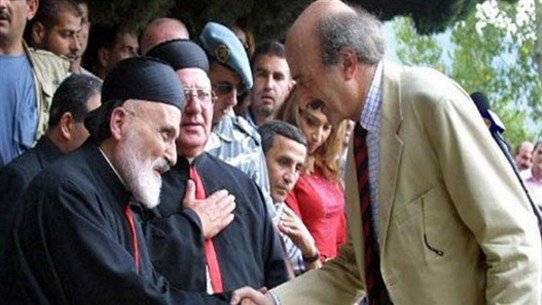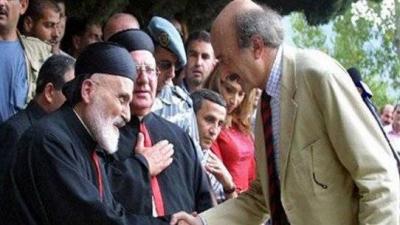The issue of Bishop Moussa Hajj coincided with confusion on several levels, affecting the Druze community after it was announced that funds were sent with him to Sheikh of the Druze, Sami Abi al-Munay. This was followed by positions issued, particularly from the leader of the Progressive Socialist Party, Walid Jumblatt, who tweeted: "Regardless of the circumstances surrounding the detention of Bishop Hajj, it is beneficial to alert that calm management is better than this noise, and respect for institutions in this difficult time is above all considerations. On the other hand, we reject the Israeli exploitation of religious figures in an attempt to smuggle money for political purposes." Jumblatt's tweet sparked some reactions and murmurs, sometimes directing arrows toward the Mountain Reconciliation, alongside a renewed reminder of the detention of Druze Sheikha Haniya Badawi at the Naqoura point last March while crossing from the occupied territories to Lebanon after her husband’s death and her decision to return to her hometown in Lebanon.
The statements issued were viewed as contrasting Jumblatt's call for calm following Bishop Hajj's detention with his actions following Sheikha Badawi's arrest and the angry movements accompanied by it at that time. Sources from the "Progressive Socialist Party," via MTV, stated that the best response to these insinuations is to remind of Jumblatt's tweet published following Sheikha Badawi's detention, which stemmed from the same perspective and spirit he approached Bishop Hajj's issue. In that tweet, he stated: "The violation of the emergency room in the military hospital by a heated and reckless crowd from a portion of the Druze is a condemned and rejected act. The question is: who brought this woman into Lebanon, and is the intent to portray the Druze as if they are above the law moved only by instinct? And who are these social media platforms that do not distinguish between the enemy and the homeland under the pretext of honor?"
The sources added: "Jumblatt's previous and current positions do not arise from any political or sectarian background, but always from a national approach and a commitment to the authority of the state and law, stressing the necessity to respect institutions and their role," adding: "We have no compromise on hostility toward Israel and cannot be lenient on this issue," noting that Jumblatt had been proactive in communicating with Arabs from 48 and Druze from Palestine, but on the basis of confirming their Arab affiliation and consistently urging them not to engage in compulsory recruitment.
Indeed, the scenario on the ground differs between the two cases; Bishop Hajj's detention provoked a wave of reactions and condemnation but did not lead to any movement in the streets, unlike Sheikha Badawi's detention which was followed by popular movements in multiple areas and pressure from all Druze political forces for her release.
While a comparison between the two incidents in terms of form and circumstances of detention may be justified, attempting to overlook the comparison and the positions issued to target the Mountain Reconciliation does not seem appropriate, even if the targeting is through Jumblatt's position for political purposes. This reconciliation has turned into a fundamental compass in the political life in the mountain, and it cannot easily be shaken after it has been deeply rooted on both political and social levels. Here, "Progressive Socialist Party" sources affirm that "Jumblatt has always placed the Mountain Reconciliation with Patriarch Mar Nasrallah Boutros Sfeir above any personal interest at every station, which has been the case in all previous entitlements leading to the last parliamentary elections. He was keen on meeting and dialogue not only with the Christian parties concerned with the reconciliation but also with all other forces, and the repeated meetings with the Free Patriotic Movement are witnesses to this despite the political rivalry," emphasizing the depth of the relationship with Bkerke and Patriarch Mar Bechara Boutros al-Rahi.




